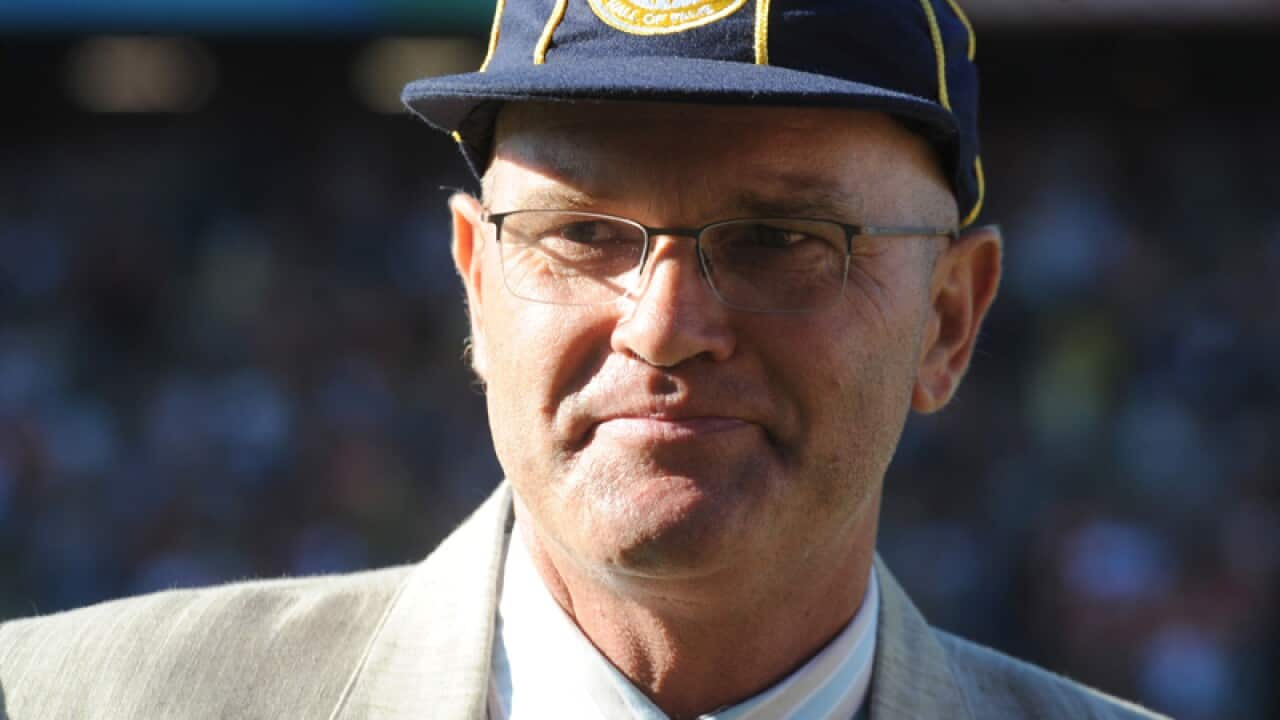New Zealand cricket great Martin Crowe has been labelled an inspiration and the country's greatest batsman by his peers following his death at the age of 53.
A statement from his family said the former national captain died in Auckland on Thursday surrounded by family.
Crowe had been diagnosed with follicular lymphoma in October 2012 and underwent treatment for the cancer but it returned in September 2014.
He chose not to continue with chemotherapy, opting instead to "chill out at home" as he managed his illness with natural remedies.
Crowe said his diagnosis had helped him realise what was important in life.
"The main thing is the love I have for the people around me, and I only really focus on compassion and forgiveness because that's the only way and I didn't used to do that at all.
"I took too long to grow up and, now I've got that perspective on what my life should be about, I've probably never been happier."
Cricket luminaries have been quick to pay tribute to Crowe who not only starred on the field but, in recent years, contributed thoughtful insights on the state of the game through his columns on cricket website ESPNcricinfo.
"An inspiration to me and so many others," former NZ captain Stephen Fleming tweeted.
Cricket New Zealand and the Black Caps also paid tribute.
"New Zealand Cricket is deeply saddened at the passing of our country's greatest batsman," it said in a statement
Prime Minister John Key joined the flood of condolences from around the world.
"Martin was a truly great sportsman - one of our finest-ever batsmen and sharpest cricketing minds," he said.
"He was a world-class athlete whose exploits on the pitch endeared him to cricket fans around the world."
New Zealand's run to the Cricket World Cup final last March featured prominently in the closing stages of Crowe's life.
He was inducted into the ICC's Hall of Fame at the innings break in New Zealand's pool match against Australia in late February last year, prompting a standing ovation from 40,000 fans at Eden Park.
And when the Black Caps continued their run to the final against Australia, Crowe travelled to Melbourne, describing the match as without question the personal cricketing highlight of his life.
"My precarious life ahead may not afford me the luxury of many more games to watch and enjoy," Crowe wrote on ESPNcricinfo.
"So this is likely to be it. The last, maybe, and I can happily live with that."
Crowe was 19 when he made his international debut in February 1982 against Australia in Wellington. He retired 13 years later after playing 77 Tests, having scored 5444 runs at an average of 45.36.
This included 17 centuries, the most by a New Zealand cricketer, while his 299 against Sri Lanka in Wellington in January 1991 stood as a national record until recently retired New Zealand skipper Brendon McCullum scored 302 against India in 2014 in Wellington.
He played in three World Cups and led New Zealand to the semi-final of the 1992 tournament, where his side lost to eventual champions Pakistan in Auckland.
He captained New Zealand in 16 Tests and 44 ODIs.
After retiring, Crowe continued to contribute to cricket.
In 1996, he came up with Cricket Max - a short form of the game which was a forerunner to the current Twenty20 craze, but which never took off.
His influence in New Zealand cricket continued in recent years as mentor to Martin Guptill and Ross Taylor.
New Zealand opener Guptill said tips from Crowe had elevated his game, and a message from the former Black Caps' skipper was behind his unbeaten 237 in New Zealand's 143-run World Cup quarter-final win over the West Indies.
Crowe is survived by his wife, former Miss Universe Lorraine Downes, and three children.

